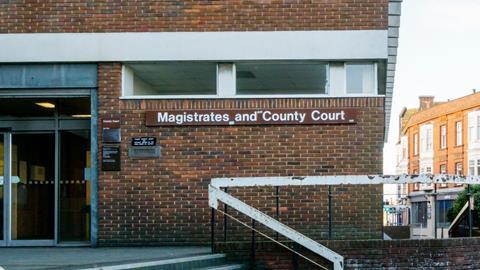Analysis of 8,500 claims reveals stark regional differences in court delays, as ministers come under renewed pressure to address blockages. But long waits are common everywhere
Massive regional differences in court delays have emerged, with cases lodged in some courts taking well over a year even to come to a first hearing. Analysis of 8,500 fast-track and multi-track claims published this week reveals significant bottlenecks in certain areas.
The east of England is the worst performing region in England and Wales, with an average of 350 days elapsing between a claim form being served and a case completing its first costs and case management conference (CCMC). The south-east and north-east were the next worst performers.
Parties at Thanet County Court, Margate, have the longest wait in the country, with their cases taking 456 days to come to a CCMC. Chelmsford (426 days), Reading (424), Bournemouth (394) and Durham (377) were also in the bottom five for timeliness.
Yorkshire and the Humber is, overall, the best-performing region of England and Wales, with an average wait time of 210 days for civil cases. The north-west and West Midlands are second and third with an average wait of 236 and 235 days respectively.
But in six out of 10 regions, claimants have to wait more than nine months for a CCMC.
The research was jointly carried out by north-west firm Express Solicitors and the Association of Consumer Support Organisations. James Maxey, managing partner of Express Solicitors, said the data is of huge concern. ‘Our clients cannot move on and get back on track with their lives if they face such a long wait. Many of them have been injured in road traffic accidents, or are fighting for compensation after suffering an injury at work.’
Quarterly civil justice statistics published by the Ministry of Justice in March showed that from October to December 2021 the mean time taken for small claims to go to trial was 51.4 weeks. That was 14.3 weeks longer than the same period pre-pandemic in 2019 and roughly the same time as a year before, during lockdown.
Multi/fast-track claims took 74 weeks to go to trial, which is 13 weeks longer than in October to December 2019.
Matthew Maxwell Scott, executive director of ACSO, said much of the focus concerning delays has been on the criminal courts, but the civil courts are used by more of the public and have been left in a parlous state. He added: ‘The government has blamed Covid for our courts chaos, but our justice system [was] starved of funding for years before the pandemic. The rule of law is too important to be allowed to wither on the vine, and we call on ministers to address these delays with urgency.’
Under a practice direction coming into force next month, judges will be able to resolve cases before a hearing without the consent of the parties. The small claims paper determination pilot will apply to most small claims in the county courts at Bedford, Luton, Guildford, Staines, Cardiff and Manchester. The exceptions will be personal injury cases and housing disrepair claims. There will be a right of appeal, but the government hopes this could start to reduce pressure on the county courts and bring down waiting times.
The MoJ says it is working to improve the time taken for civil claims to reach hearing by maximising sitting days and increasing efficiency through its reform programme. Measures introduced during the pandemic such as greater use of remote hearings have prevented delays from increasing, but the government believes it will take time for improvements to show up in data.
An MoJ spokesperson said: ‘Despite the impact of the pandemic our timeliness figures in civil courts remained stable over 2021 thanks to the swift action we took – including introducing Covid-secure courtrooms and remote hearings.
‘We are also allowing courts to hear as many cases as possible and investing an extra £324m over the next three years to improve timeliness in civil and family courts, and tribunals.’
Pictured above: Thanet County Court, where parties face 456-day wait for a costs and case management conference





































1 Reader's comment